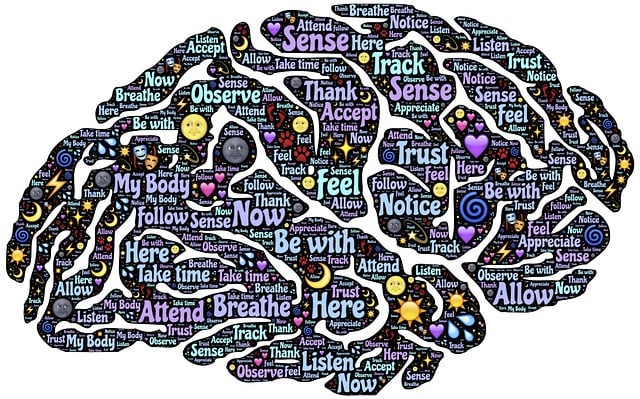Longmont Alcohol Abuse Therapy develops accessible, comprehensive mental wellness self-assessment tools to empower individuals in understanding and managing their emotional health. These user-friendly interfaces, incorporating validated psychological assessments, cater to diverse populations and help identify risks, monitor progress, and guide personalized trauma support. Through community outreach and workshops on result interpretation, these tools promote mental health awareness and encourage proactive coping strategy adoption. Continuous improvement driven by data, user feedback, and expert insights ensures their relevance and effectiveness in fostering positive change and meeting local community needs.
Mental wellness self-assessment tools play a pivotal role in individualized care, empowering individuals to take charge of their mental health. Given the rising demand for accessible and effective assessments, this article explores the development of such tools, focusing on the successful implementation by Longmont Alcohol Abuse Therapy. We’ll delve into key components, the creation process, and measurement strategies, offering insights that can guide professionals in enhancing mental wellness support.
- Understanding the Need for Self-Assessment Tools in Mental Health
- Key Components of an Effective Mental Wellness Self-Assessment
- Developing and Implementing Longmont Alcohol Abuse Therapy Self-Assessment Tools
- Measuring Success and Continuous Improvement in Mental Wellness Self-Assessment Tools
Understanding the Need for Self-Assessment Tools in Mental Health

In today’s fast-paced world, prioritizing mental wellness is more crucial than ever. Longmont Alcohol Abuse Therapy has recognized the growing need for accessible and effective self-assessment tools to support individuals in their journey towards better mental health. Many people struggle in silence, unaware of the extent of their emotional turmoil or the resources available to help them. Self-assessment tools serve as a gateway to awareness, enabling individuals to gain insights into their mental well-being and identify areas that may require professional guidance or intervention.
These tools are particularly valuable for promoting self-esteem improvement and crisis intervention guidance. By providing a structured framework for reflection and evaluation, they empower users to take charge of their mental health proactively. Whether it’s assessing symptoms, tracking mood patterns, or evaluating risk factors, these assessments can be game-changers in fostering positive thinking and encouraging individuals to seek the support they need, such as that offered by Longmont Alcohol Abuse Therapy.
Key Components of an Effective Mental Wellness Self-Assessment

An effective mental wellness self-assessment tool should incorporate several key components to ensure its validity and reliability. Firstly, it must be comprehensive, covering various aspects of mental health such as emotional well-being, stress levels, anxiety, depression, and substance use disorders like alcohol abuse. Longmont Alcohol Abuse Therapy, for instance, relies on tools that can identify these issues early to facilitate timely interventions. The assessment should also be adaptable, catering to diverse populations with different cultural backgrounds and needs. This involves ensuring cultural competency among healthcare providers through training programs, which is crucial in building trust and encouraging honest self-reflection.
Additionally, user-friendliness and accessibility are vital for encouraging regular use. Stress management workshops within organizations can enhance this by teaching individuals how to interpret their assessment results and adopt healthy coping strategies. Community outreach program implementations can further promote mental wellness self-assessment as a community-wide initiative, fostering collective responsibility and support.
Developing and Implementing Longmont Alcohol Abuse Therapy Self-Assessment Tools

Developing and implementing Longmont Alcohol Abuse Therapy self-assessment tools is a multifaceted process that integrates mental health education programs design with evidence-based practices. These tools aim to democratize access to mental wellness assessment by providing individuals with resources for self-care practices, empowering them to take proactive steps towards managing their well-being. By integrating user-friendly interfaces and validated psychological assessments, these tools can effectively identify risks, monitor progress, and guide users toward appropriate trauma support services tailored to their unique needs.
In Longmont, the focus is on creating assessment solutions that not only detect alcohol abuse but also foster a culture of mental health awareness. This involves collaborating with community organizations, healthcare providers, and local government to ensure the tools align with the diverse needs of the population. Incorporating feedback from users and subject matter experts ensures the reliability and cultural sensitivity of these assessments, making them valuable resources for both personal growth and public health initiatives.
Measuring Success and Continuous Improvement in Mental Wellness Self-Assessment Tools

Measuring success and driving continuous improvement are essential aspects of developing effective mental wellness self-assessment tools, such as those offered by Longmont Alcohol Abuse Therapy. Setting clear goals and metrics is crucial to ensure that the tool provides valuable insights and promotes positive change. This includes tracking the accuracy and reliability of assessments over time, as well as evaluating user feedback and satisfaction levels. By collecting data on how individuals use the tool and interpreting their outcomes, developers can identify areas for enhancement, ensuring the tool remains relevant and beneficial.
Regular updates and iterations based on this data are vital to keep up with evolving mental health needs. For instance, incorporating features that cater to diverse populations or integrating new research-backed techniques can significantly improve the tool’s effectiveness. Moreover, promoting public awareness campaigns development and stress management workshops organization around these tools can amplify their impact, fostering a culture of coping skills development and overall wellness.
Mental wellness self-assessment tools are invaluable resources for individuals seeking to understand their emotional well-being. As discussed, these tools play a pivotal role in early detection and prevention of mental health issues, especially when tailored to specific populations like those in need of Longmont Alcohol Abuse Therapy. By incorporating key components such as symptom tracking, risk factor assessment, and personalized recommendations, self-assessment tools can empower individuals to take charge of their mental health. Continuous improvement through measured success ensures these tools remain effective and relevant, fostering better outcomes for those seeking support.














